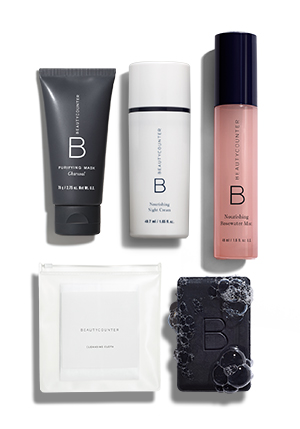19 April, 2016
You’ve Been Diagnosed with IBS…Now What? (Part 2)

In the previous post my friend Paula shared her story of dealing and being diagnosed with IBS (Irritable Bowel Syndrome) and how taking matters into her own hands saved her health. In part 2 I wanted to talk about what you can do after the diagnosis or even if you are suffering with digestive issues. I often find that clients that I work with have digestive issues and don’t even realize it is effecting them. They may just have the occasional bloating or think it is normally to have a bowel movement every couple of days, but it isn’t normal. Sometimes it is an easy fix and other times it takes a lot more effort to find the root cause and solve the problem.
Is Your Gut Flora Imbalanced?
IBS can be caused by a number of different issues but gut flora imbalance is a fairly common one. Information about gut health and microbiota are everywhere these days but for good reason. Research has been coming out that gut flora imbalance can cause a variety of functional digestive disorders, including IBS. A wide variety of factors can negatively affect your gut bugs including: being born by C-section, antibiotic use, medications, and a processed diet especially high in refined carbohydrates and sugar. In her story Paula mentioned having SIBO (Small Intestinal Bacteria Overgrowth) and candida: a condition in which the bacteria in the small intestine grow too rapidly, causing general digestive symptoms. Anywhere from 30-85% of people with IBS have been found to also have SIBO. This can happen due to following a highly refined carbohydrate diet (including sugar and white flour), stress, medications such as birth control and NSAIDs, and/or antibiotic use that kills off both good and bad bacteria.
What can you do? Find a functional practitioner that can test you for gut flora imbalances. Although not always 100% accurate it might be helpful to give it a try. You can (and should anyway) start by cleaning up your diet. Cutting out the sugars and refined carbohydrates that feed the bad gut bacteria. Supplements can be helpful but you may still want to work with a health professional to find the right combination that will work for you.
How Healthy Is Your Gut?
If you are experiencing any symptoms of IBS then the answer to this question is likely not very healthy. Most of your immune system lies in your gut, about 75% in fact. We have about 100 trillion cells in our guts and contains 10 times more bacteria than all the human cells in the entire body with over 400 known bacteria strands. Imbalanced gut flora has been linked to diseases ranging from autism and depression to autoimmune conditions like Hashimoto’s, type 1 diabetes, and yes IBS. The health of your gut flora can be determined as early as when you are born. Infants that are born via C-section, aren’t breast-fed and are born to mothers with bad gut flora are more likely to develop unhealthy gut bacteria. As life goes on toxins we are exposed to, medications we take, foods we eat, how stressed we are, and how we take care of ourselves can cause unhealthy gut bacteria.
What can you do? This can start as early as before pregnancy, mothers making sure they are taking care of their gut health. If you are unable to give birth vaginally be sure that the baby still gets exposed to mothers bacteria. Antibiotics are widely overused so make sure that you don’t take unnecessary rounds of them. If you do need to take antibiotics make sure you follow up with a good probiotic. Avoid processed foods and follow a real food diet (everything I try to teach here) and manage stress. Does it sound like I am repeating myself?
Are You In A Constant Inflammatory State?
Inflammation is a necessary part of life. If you get a cut or have surgery inflammation is the bodies way of healing. It is when it becomes chronic and constant that we reach a critical point. This type of inflammation is the bodies way of saying that something is wrong. IBS is systemic inflammation of the digestive tract and is generally a sign that something is irritating the lining. This constant irritation can be a sign that there is disease present, an injury, stress, or even food allergies or sensitivities. Parasites, bacterial infections, and viruses can trigger gut issues such as gastroenteritis. Having a leaky gut (see below) can also trigger inflammation.
What can you do? Again you will want to work with a good doctor that can test you for parasites, infections, and viruses. They can work with you to get rid of the root issues. You may want to work with a functional dietitian (such as myself) and do an elimination diet or possibly a LEAP food sensitivity blood test to find any food allergies or sensitivities. Removing irritating foods is an important step. Another common cause of IBS is fructose malabsorption and/or FODMAP intolerance, which can cause fermentation in your gut. You can try to remove FODMAP foods for awhile and reintroduce slowly to see if anything triggers your symptoms. If you still don’t find relief you can also try a SCD or GAPS diet to find what works best for you. It’s also pretty important to self-experiment and not just write entire foods off because they contain something that might be the culprit in causing you problems with another food. You may not tolerate raw tomatoes but do well with them cooked for example. Including inflammatory reducing foods may also provide some relief: think turmeric, ginger, and Omega 3 fats just to name a few. At the same time you will want to remove the inflammation promoting foods often found in refined foods and vegetable oils. Following a real food diet can not be replaced with just taking medications or supplements.
Is Your Gut Leaky?
“Leaky gut” is when the intestinal barrier becomes permeable, large protein molecules escape into the bloodstream. Since these proteins don’t belong outside of the gut, the body mounts an immune response and attacks them. Studies are suggesting that this leaky gut has a connection to autoimmune conditions. Symptoms for a leaky gut may not be as obvious as you might think. Leaky gut can be associated with skin problems like eczema or psoriasis, heart failure, autoimmune conditions, mental illness, autism, depression and yes IBS. The same behaviors that can cause gut flora imbalances, an unhealthy gut, and inflammation can be the cause of leaky gut. Are you starting to see the connection?
What can you do? Remove toxins from you diet (eat real food), eat fermented foods, include fermentable fiber to feed the good gut bacteria, manage stress, find the root cause of the issue with the help of a healthcare professional with knowledge of these issues.
How Is Your Mental Health?
This may sound like an odd question when it comes to your gut health but research is showing how the gut and brain communicate with each other. Mental health doesn’t cause IBS on its own, but studies are suggesting there could be a connection. Think about a time when you got really nervous…did you experience diarrhea as a result? It is all connected. It also doesn’t help that even just having IBS can be very stressful for many people. Constantly worrying about being able to find a bathroom, wondering if what they are eating will cause distress, or low quality of life can be making matters worse. Serotonin is a neurotransmitter in the brain that effects positive and negative feelings as well as gut motility. Stress can alter serotonin production and studies are showing the connection between low serotonin and IBS. Further proving the gut-brain connection.
What can you do? First and foremost you need to find a way to relax. Taking up meditation, yoga, say no to commitments you don’t have time for, or take hot baths. Whatever it takes. Your health is worth it!
IBS doesn’t have to be something that you just live with or manage with conventional medicine. IBS is such a general diagnosis that what works for one person may not work for another. Paula’s story will hopefully give you hope that there is a solution for YOU out there.










Thank you for this article. My son eats too many carbohydrates… He is a “problem eater” and we have been trying to get him to try healthier foods, but he has a texture issue. I’m thankful he drinks smoothies and am able to put plenty of healthy ingredients in it. Can a child (5 years old) take a probiotic?
Thanks!!
Yes they can! They actually make probiotic specifically formulated for young children. Check out your local health food store to find some.
Thank you! This article makes me feel less alone!
Then this article has done its job!
Hi Sara!! What a wonderful article! My daughter who is 17 has been struggling with belly problems for 4 years! Finally got an answer with blood work consistent with IBS! She will be seeing a GI next month to look further into her problems. This article gives me hope for her, she misses school and sometimes can’t even eat at all or leave her bed, it’s very inconsistent as some days she feels good! Very stressful
I am so glad that you are on the road to figuring out the root cause of her problems. IBS is such a general diagnosis but there must be a cause so I hope that you find out what that is so that you can fix it. Let me know if you need any assistance. I’d be happy to help just look under my work with me tab!